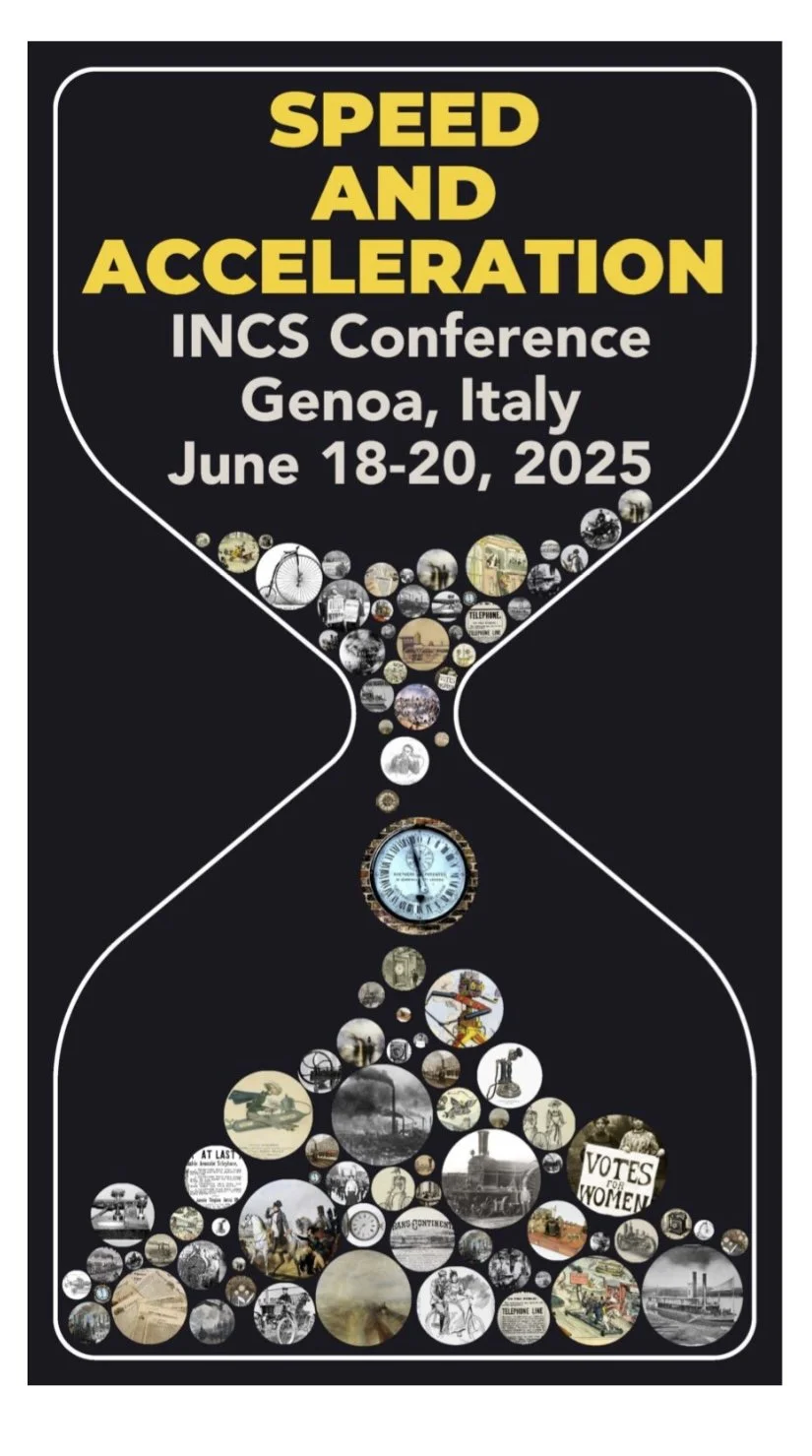INCS CONFERENCE 2025
Genoa, Italy: June 18-20, 2025
Confirmed keynote speakers:
Clare Pettitt (University of Cambridge)
Diego Saglia (University of Parma)
The Interdisciplinary Nineteenth-Century Studies conference theme, Speed and Acceleration, examines the experience of an accelerating pace of change across various dimensions of life as one of the distinguishing marks of modernity. As shown by Hartmut Rosa and others, this is the result of complex, wide-ranging and interconnected transformations. Advances in technology lead to an acceleration of process, communication and information flow. This, in turn, leads to the rapid development and dissemination of technologies that influence how we interact, work, and live. Social practices, norms, and expectations accelerate, demanding quicker adaptation and response from individuals and institutions, as testified to by the faster turnover of trends, changes in social roles, and evolving cultural norms. The pace of change in personal relationships, and lifestyles also accelerates: individuals need to adjust rapidly to changes in family structures, societal expectations, and personal identities. Throughout, speed and acceleration are connected, but they are not synonyms: high-speed technology should give us more time and make our life, if anything, more relaxed; conversely, contemporary social acceleration results in a culture of “chronic time famine” (H. Rosa and W. E. Scheuerman, High-Speed Society 2009). Life in technologically and economically advanced countries entails experiencing the paradox of being relentlessly pressed for time while having at one’s disposal an amazing range of time-saving technologies.
This implies that, historically speaking, we are now ideally positioned to reconsider the past in this light and explore the ways previous experiences of acceleration impacted society, were saluted with satisfaction and/or alarmed outcries, generated discourses of, and attempts at, deceleration, modified the perception of history and time, and shaped individual attitudes to life. In this respect, the nineteenth century – which began under the aegis of such formidable “accelerator” as the industrial revolution (with the concomitant political upheavals of the Age of Revolutions), and ended with the onset of another peak of social acceleration (1880-1920) – provides especially fertile terrain for scholarly investigation. How did nineteenth-century writers, artists, philosophers, intellectuals, economists, scientists and politicians articulate the discourse of social acceleration? How did they position themselves regarding speed and speeding up technologies? How did they react to the feeling that history was accelerating its pace, and that the experience of the previous generations was becoming obsolete/irrelevant in modern times? How was the changing pace of life conceptualised or artistically represented? Which dimensions of life, or sectors of society, or geographical areas, were perceived as accelerating? Which actively resisted the accelerating trend or passively lagged behind? What conflicts resulted from these differences of pace?
Within this general framework, proposals will be welcome on a variety of topics including, but not limited to:
the representation of time
the changing relationship between time and space
new technologies’ impact on everyday life (steam technology, trains, bicycles, etc.)
speeding up the means of communication (newspapers, the telegraph, the telephone) or the means of production (cultural or otherwise)
generational clashes; gender clashes
the perception of increased or lagging social mobility
individual perspectives on speed: the cult of living fast
the compression of the present, its “museumification,” the preoccupation with heritage
the fast development of literary genres and hybrid forms
the discourse of accelerating consumption and fast-changing fashions
ecological concerns: consumption of natural resources outpacing nature’s powers of recuperation
the language of science: acceleration and changes
Deadline: October 31, 2024, with notification of acceptance by late January 2025. For individual papers, send 250-word proposals; for panels, send individual proposals plus a 250-word panel description to incsgenova@gmail.com. Please include a one-page CV with your name, affiliation, and email address.
Proposals that are interdisciplinary in method or panels that involve multiple disciplines are especially welcome.
More information about INCS and the conference can be found on the organization’s website.


